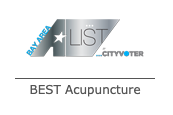Why we should talk to young people about fertility planning
This blog post is a personal reflection by one of our Front Office staff, Lena. Her story came from our group conversations about how Blue Ova contributes to fertility education and the landscape of emotion, advocacy and activism around fertility awareness and care.
Before I worked at Blue Ova, I spent my days encouraging enthusiastic discussions of bodies and reproductive health with high schoolers in San Francisco as a health educator. I loved the work, the connections I had with students, and the “ah-ha” moments that young women in my classroom would have when discovering something new about their bodies. I touted monthly periods as empowering and information-rich experience, and provided my favorite resources on consent and communication.
A few years into teaching, I attended a conference in Los Angeles about women’s sexual and reproductive health. Organizations and companies that spanned the breadth of health and wellness had come from all over— everyone excited to talk at length about empowerment, education and bodies. I spoke with a woman starting a fertility clinic, a business world that was unknown to me at the time. We were both from San Francisco-- we chatted about the healthcare climate in SF and I talked about the health education work I was doing. “You should be talking to your students about fertility!” she said enthusiastically. I laughed— “but they’re only 16?”
As we talked, she expressed how crucial fertility education is. She emphasized the huge gap in fertility awareness for young people (“we don’t even talk to women in their 20’s about it!” she noted). On the spot, we got lost in speculations about what this type of education could look like; helping young people understand fertility and conception and how to care for and prepare their= bodies for pregnancy, even if family planning was years away.
This was eye-opening for me. I was so focused on pregnancy prevention (spending whole class periods discussing birth control) and brushing over the actual anatomy of conception and the body’s reproductive mechanisms.
My commitment to practicing comprehensive reproductive health education was not as comprehensive as I thought. Acknowledging and promoting fertility awareness is a critical part of reproductive health education and expanding beyond pregnancy prevention is important.
The cultural narrative of pregnancy centers around surprise, ease and magic. We have set a cultural expectation that as soon as one stops preventing pregnancy, they get pregnant. But many of our Blue Ova patients share that they are disappointed and rocked by the challenge of getting pregnant. These common notions around pregnancy are harmful— they erase many people’s reality, where starting a family can take years and come with hurdles like loss, financial stress and strained relationships. When our patient’s express that they wish they had known more about the challenges and intricacies of getting pregnant, it is our job to reassure them that it is the failure of the current state of fertility and family planning education, not their bodies.
Educating young people about pregnancy prevention is still critical. It just isn’t a very full picture of reproductive health. People of all ages — from middle and high schoolers, to those in their 20’s, 30’s and 40’s — need information about how to care for their bodies throughout it’s reproductive lifespan. We can then support people throughout the phases of their reproductive lives with tools and resources for whatever the path they choose.
Do you wish you had more information about your fertility at a younger age? Did anyone in your life talk to you about fertility in an encouraging, supportive and non-judgemental way? Do you have a vision for comprehensive reproductive health education?
Blue Ova seeks to meet patients where they are at in their fertility journey and offer comfort and education about fertility. We identify the gaps in fertility education and offer new solutions for a fertility-aware future. Let us know how we can support you in your journey.




